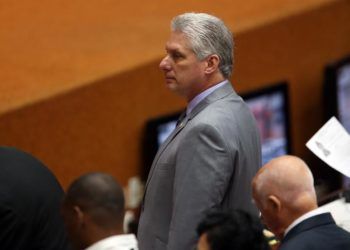Presidential Succession in Cuba: now is the moment for constitutional reform
After a much awaited period of expectations and predictions, Miguel Díaz-Canel has received the presidential nomination. Unlike in the United States Electoral College system or the European parliamentary democracies, the Cuban electoral process is narrowly constrained by a National Assembly that nominates the president and elects the members of the Council of State and Ministers. The Cuban constitution of 1976, although amended in 1992 to remove limitations on foreign investments that began the ‘liberalization’ of the state-run economy, is a document inherited from the Cold War and specifically from Stalinist Soviet legalism. As historian Rafael Rojas has argued, this constitutionalism is strictly designed to protect and empower the role of the Communist Party through all decision-making processes in the country . This model has obstructed the flourishing of political and civil associations over a long period of time. If there is any hope in this new political transformation in Cuba, it is the much-needed constitutional reform that will begin early next year and move into 2020. If such reform were to advance, its impact would have deep effects not only on the island, but also in the international community, where Cuba has a major role to play. The task will...




